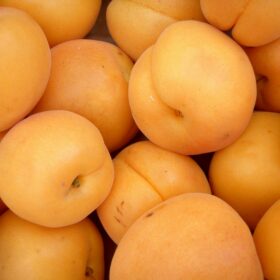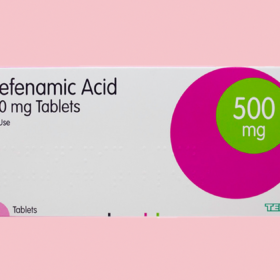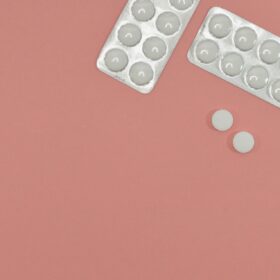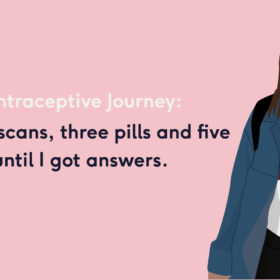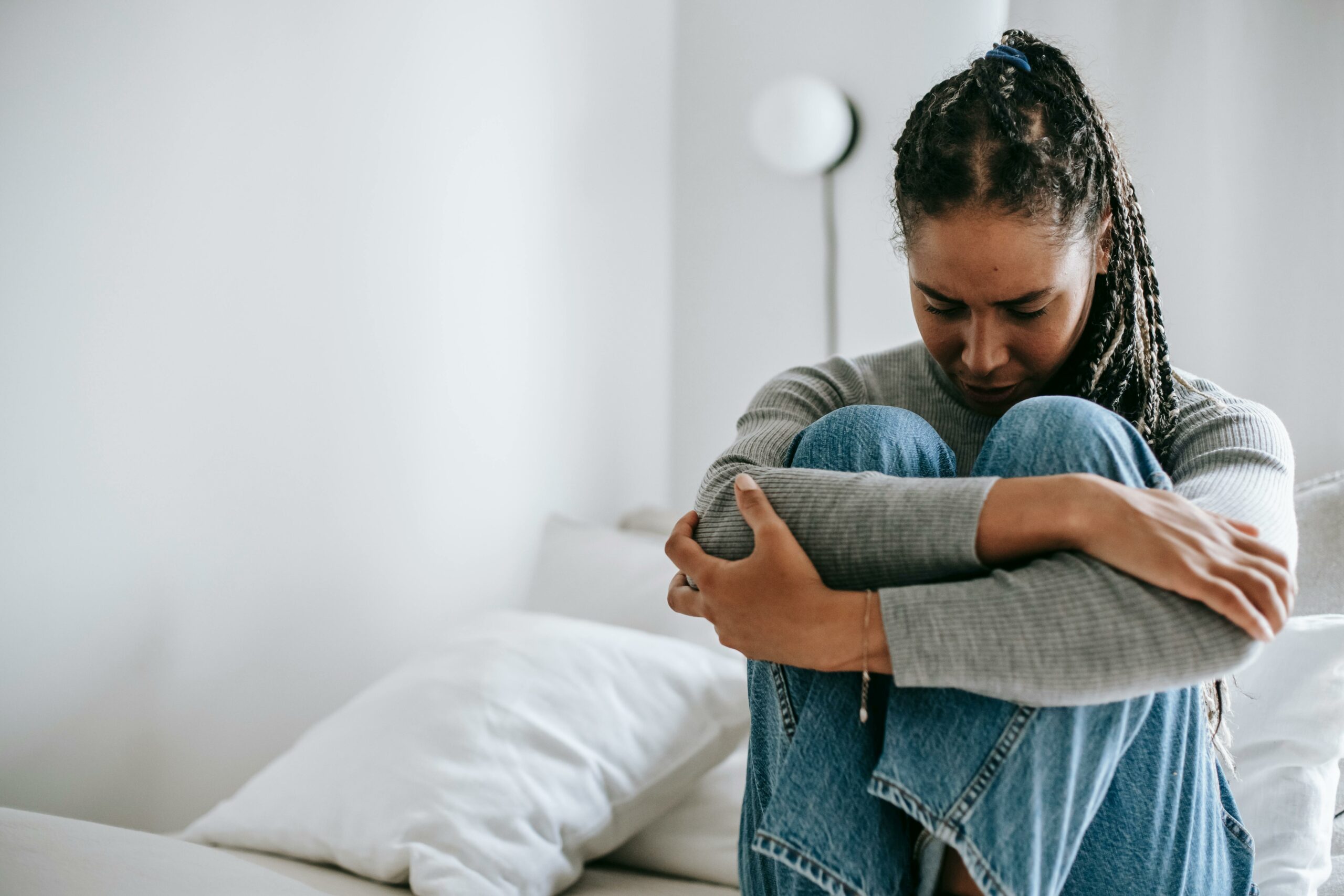
Period pain relief: how to ease the pain
In this article
What's the lowdown?
From medications for painful periods to natural remedies for period pain, the options are vast
Medical options include over-the-counter or prescribed painkillers
Hormonal contraception can also be used to dampen period pain or stop periods altogether
Exercise, heat therapy or TENS machines are other effective pain-relief methods
Not all pain relief options work similarly for everyone
Period pain is well a pain! Sometimes a pain in the butt (quite literally)!
Some people might never have a painful period in their life (I’m looking at you mum), while others might find them manageable or simply excruciating to the point of ruining your day.
If you are anything like me, I dread my period. Let’s get personal. I got my first period at 14 and I simply could not manage. The pain was so bad I would faint. During the first 6 months of my period, I was admitted to the hospital about 10 times, only to be told it must be due to something with my brain or heart. Countless tests later, nothing was found (thankfully) but I still did not have answers. At that time, I had moved so much as a kid, I never really received any period education so I was oblivious (never again!). My mum told me she never had painful periods so I must be putting on a show (I love you really mum).
So I was left to my own devices and there started my journey with period pain relief options! I still sadly don’t know why my periods are so bad, but I have definitely found a great cocktail of pain relief that prevents me from losing my days to period pain (medically known as dysmenorrhea).
Our powerhouse team at The Lowdown has practically tried it all, so I will shed some real-life experiences along the way.
What causes painful periods?
There are 2 type of dysmenorrhoea – the medical term for painful periods1:
- Primary dysmenorrhoea: Pain and cramping that starts on the first day of your period and gradually decreases in intensity by day 3
- Secondary dysmenorrhoea: Caused by a gynaecological condition, such as endometriosis. The pain can start before your period and worsen as your period progresses
Our womb (uterus) naturally produces chemicals called prostaglandins, which trigger the womb muscle to squeeze and shed the uterus lining. When it squeezes, it can cut off the blood circulation to the womb causing pain. In some people, they experience more severe pain than others as they have a higher level of these prostaglandins2. But painful periods means better fertility chances, right? Well this is a myth, and simply not true!
Period pain remedies
Pain relief comes in many forms from tablets to TENS machines, heat pads to hot water bottles. Let’s traverse this world of period pain relief together. Grab a cup of tea and join me!
Medications
Over-the-counter
Medications, or “period pain tablets”, can either be bought over the counter (OTC) or prescribed by a healthcare professional if stronger doses are needed.
Some simple OTC medications can be paracetamol, ibuprofen (or nurofen), naproxen, co-codamol (a combo of paracetamol and codeine, which is a strong opiate type painkiller). If you have mild period pain (yes jealous), these could work for you.
Naproxen is a stronger version of ibuprofen and are both non-steroidal anti-inflammatory drugs (NSAID)3. They essentially reduce the inflammation in the body by blocking the enzyme that produces prostaglandins in the body. It can be bought OTC under the brand name Ultravana.
Tranexamic acid is another non-steroidal, anti-inflammatory drug (NSAID) used in the treatment of heavy periods. It works to control bleeding by helping the blood to clot. Tranexamic acid reduces menstrual blood loss by up to 50%. It is only taken for a short time each month to control your monthly bleeding. Usually this is two (500mg) tablets taken three to four times a day, for the first three to four days of your period. Tranexamic acid is now available to buy over the counter from pharmacies under the brand name Evana.
Dr Fran, our Medical Director: “My periods have never been too bad pain-wise. The worst period I ever had was after I used norethisterone to delay my period for a holiday. Luckily, 2 ibuprofen had me out of bed and back on a ward round within 2 hours.”
Ellie, our lovely intern: “I am lucky enough that I don’t suffer with debilitating period pain, but when I do have a flare-up I usually take paracetamol or ibuprofen which usually does the trick. If I’m really feeling it, I’ll make my mum – yes, I know I am 22 years old but mum’s love forever – make me a hot water bottle and I almost always feel me again.”
Jen, product manager: “Ibuprofen did not really work for me but I’ve recently discovered that you can buy Naproxen over the counter so I got an online prescription from Chemist4U without needing to book yet another GP appointment! So far this is working ok but only to take the edge off”
Dr Zaakira, Lowdown GP: “As soon as I know my period is about to begin I take ibuprofen prophylactically! If I wait for the pain to start I am then super grumpy and in pain waiting for things to kick in. Starting in advance means I can get on with my day being super mum!”
Prescribed medications
Sometimes OTC painkillers are just not strong enough to take the edge off. For stronger medications, you usually need a prescription!
If OTC medications don’t work for you, your doctor might prescribe another NSAID called mefenamic acid. It is a popular period pain choice as it can also help to improve heavy periods but is found to work as effectively as ibuprofen4. Surprisingly, ibuprofen is still crowned a better pain killer than mefenamic acid5.
Personally: “I tried all the over-the-counter medications but it just was not making any impact on my period pain. After years of popping too many pills, I was prescribed mefenamic acid when I was 16 by a UK GP. Supposedly, it should have been a stronger painkiller than anything from the pharmacy. From what I can remember, it worked well for about 6 periods but then I started to notice it fading and not being as effective in reducing my pain. I’ve gone back to using co-codamol, it just suits me better.”
The best painkiller for period pain is the one that works for you. As you can see, period pain tablets affect us differently. It might take a bit of trial and error to find something that works for you.
Hormonal contraception
Hello, hormones!
Contraception as we know does so much more than preventing periods. Hormonal contraception aims to thin the womb lining, which can mean shorter periods and less pain6.
Some contraception methods can also stop periods altogether, so no period = no pain! And there is also benefit in treating heavy periods with hormonal contraception too.
There are multiple hormonal contraception types like the combined contraception pill, progestogen-only pill, implant,hormonal coil (also called IUS), patch, ring and injection.
Don’t get the hormonal intrauterine system (IUS) mixed up with the intrauterine copper device (IUD). A known side effect of IUD is painful periods, so that’s a no for me!
Jen: “I’ve been on and off the combined pill for about 15 years but with mixed messaging each time I went for a check-up, as I was told it’s fine to take continuously but then in the next visit I’d be told it’s not safe and I must have a break every month which meant more pain”
For me: “I tried the Kyleena IUS before starting my foundation training in the NHS in the hopes it would mean missing fewer days at work. The Kyleena has a lower dose of progestogen which I thought was a safe bet as it was my first time trying contraception, however, for the WHOLE first month I was getting the worst breast tenderness and random muscle spams that left me curling on the ground. I knew something was not right and I would not be able to work like this. After getting it removed, within 2 days the symptoms disappeared and I felt back to myself. I was hoping the IUS would be my saving grace as so many of my friends have said great things about it.”
Selfcare
Transcutaneous electrical nerve stimulation (TENS)
TENS is a type of pain relief method that can be used to reduce period pain. It comes in the form of a small machine with some sticky pads that you attach to yourself. The TENS machine for period pain works by sending mild electrical pulses (don’t worry it won’t electrocute you) to your spinal cord and brain which is thought to help alleviate pain and relax muscles. It may also produce endorphins at the same time which is a natural painkiller our body creates.
But does it work?
Jen our product manager: “I haven’t found that tens machines work for me and find the sensation quite annoying, to be honest!”
Dani our community lead: “I usually get pretty bad period pain for the first two days of my period. Not sure if it’s my PCOS but it was terrible in my teens, then cooled off, and then has been bad the past few years again . So far, I haven’t found my magic cure yet but I do find that TENS machine helps ease the pain but not stop it altogether.”
Scientific evidence is limited on whether TENS is a reliable option to treat period pain. But what we do know is that it does not cure the pain and relief will only be achieved while it is being used.
Still not convinced, have a read more on how MyOovi has transformed the lives of some women!
Wanna give it a try? MyOovi is a leading period TENS machine, discrete and easy to use on the go. Get yours today!
*FYI – this is an affiliate link, which means The Lowdown will earn a commission on any purchases made.
Heat pads or hot water bottles
If you prefer an old-school method (nothing wrong with it!), heat therapy is a great period pain solution. I myself am a fan.
You can use heat pads or hot water bottles on your tummy and the heat should spread to the uterus, increasing blood flow to this area and relaxing those muscle spasms so bye bye pesky cramps8.
Taking a hot water bottle with you on the go might be tricky, but there are wearable heat pads for period pains out and about.
But be careful not to scald or burn yourself. Repeated use of heat on the same area can also lead to skin changes called Erythema Ab Igne. With prolonged use, there is a risk of skin changes that can become cancerous.
Alice, our amazing founder: ’I’ve always had quite painful periods due to having endometriosis. A few things help. Firstly, we call him ‘womb owl’ – one of those microwaveable wheat heat bags. When I ask my fiance Keiran to ‘get womb owl’ he knows what’s up. Also I bosh one of those big pink ibuprofens after a meal, and find that takes the pain away within an hour. Finally, a warm bath. Magic’ We’ve got more tips for pain relief for endometriosis here.
Rachel our Chief of Staff: “I am a bit of a disaster when it comes to my period, and haven’t got into any good routine of tracking anything . I have debilitating pain sometimes and usually have to go and lie down, but it is infrequent enough that I haven’t yet done much about it. But when it comes along, so far all I have tried is a hot water bottle, which I’d give a 6/10 for pain relief. I’d love recs for better pain management, and if anyone can work out a way that I can build tracking into my daily routines to make it less of a chore, I am all ears!”
Don’t gatekeep, if you have any recs for Rachel, reach out to us on our socials! We’d love to hear from you!
Exercise
Oh god, exercise is probably the last thing on your mind. In the week leading up to my period, my energy levels and mood hit an all-time low, so hitting the gym is not really on my to do list. Hello PMS!
Does exercise help with period pain? Exercising produces endorphins which are our body’s natural painkillers (plus feel-good hormone).
A review of studies in 201910, looking at 700 women with moderate to severe pain, found that a 45 to 60-minute low-intensity and high-intensity exercise routine can reduce pain levels by about 25%. It also noted that exercising reduced the consumption of painkillers and absences from work/school. The great benefit of exercise is that there are no side effects!
Jen our product manager: “A hot bath also helps for a little while (I love heat therapy for period pain!) And have also found that swimming eases the pain for a few hours after (after finding out there’s no reason why you can’t swim on your period)”
So does exercise help period pain? Yes, and will leave you feeling great (thank you endorphins), albeit a bit sweaty.
Alternative therapies
Acupuncture
Well, this is an interesting one. Never thought to stick myself with needles to achieve a pain free status.
Acupuncture is a traditional Chinese remedy. It involves stimulating the nerves in the skin and muscles by inserting thin needles into different points around the body. The body then also produces natural pain-relieving chemicals like endorphins. Acupuncture isn’t a one-and-done treatment and generally needs a few sessions to see a benefit11.
When it comes to period pain, acupuncture can be more effective than NSAIDs like naproxen for period pain. It can relieve pain immediately and has a great safety profile (so low risk and side effects). However, there have only been a small amount of studies looking at acupuncture and painful periods so the evidence backing it is not very strong.
Unfortunately, none of us here at the Lowdown has tried acupuncture for period pain but could it be a great idea for our next away day 👀!
What do I use?
Everyone’s experience is unique. What might work for you might not work for another. And while options can be recommended for you, you won’t know if it’ll be effective until you try it.
Give these options a go. Mix and match. If you’re anything like me, you could need a combo of treatments to seek relief.
If these do not work and you need more of a helping hand, reach out to your GP or Lowdown women’s health GP. We will listen without dismissing your pain, because frankly we can relate!
Our medical review process
This article has been medically reviewed for factual and up to date information by a Lowdown doctor.


